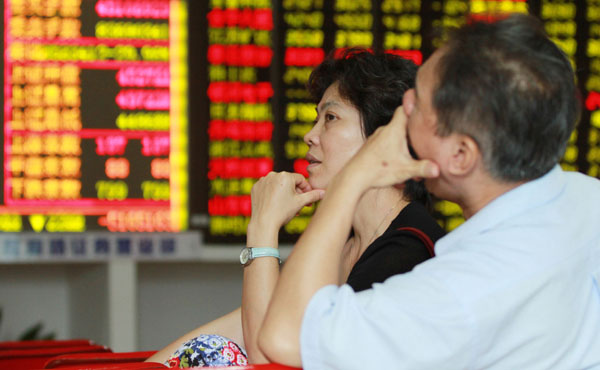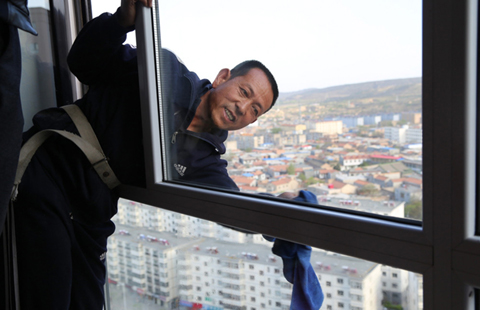Chinese shares tumble after 'unverified' SOE consolidation
(Xinhua) Updated: 2015-04-29 09:28
 |
|
Investors check share prices at a brokerage in Haikou, Hainan province, April 28, 2015. [Asianewsphoto by Shi Yan] |
The benchmark Shanghai Composite Index dropped 1.13 percent to finish at 4,476.22 points, and the Shenzhen Component Index lost 0.69 percent to close at 14,707.25 points.
The ChiNext Index, the Nasdaq-style board that tracks growth enterprises, declined 2.17 percent to end at 2,687.97 points.
Shares in oil; media and entertainment; furniture; and aircraft dipped substantially.
Media reports about possible SOE consolidation went viral Monday and propelled key stock indices to fresh highs.
"The story was written without interviewing or verifying with us," the State-owned Assets Supervision and Administration Commission said in a brief statement, without elaborating.
The equity market has seen bullish performance since last October, with the benchmark Shanghai Composite Index almost doubling in the past seven months.
Xiao Gang, head of the China Securities Regulatory Commission (CSRC), attributed the skyrocketing market mainly to continuous reform measures, which, he believed, stabilized market expectation and boosted investors' confidence.
Wu Xiaoqiu, a finance professor at Renmin University of China, echoed Xiao, but he also expressed fear of rising speculation in the market, citing the substantial daily turnover on the two stock exchanges.
Combined turnover amounted to 1.7 trillion yuan ($276.9 billion) on Tuesday, up from Monday's 1.6 trillion yuan. Turnover on the Shanghai Stock Exchange topped one trillion yuan for the second time this month.
Hu Zuliu, chairman of investment firm Primavera Capital Group, said Chinese shares were partly boosted by policy incentives like monetary easing, and it was not sustainable.
For many companies, stock prices have little to do with their financial performance, but rather so-called "insider information". Some stocks rose steeply in a very short time and surpassed their true value.
- China pledges reciprocity, market operation in capacity export
- China urges local govts to deepen fiscal reforms
- Premier eyes consumer goods market for growth
- PetroChina net profit drops 82% in Q1
- China International Cartoon and Animation Festival kicks off
- Slowdown 'may last longer'
- UAE wants to be trade catalyst
- PBOC 'poised to pull QE trigger' as economy stalls

















